Growing up in rural Kenya, Sam Irungu knew the daily struggle of collecting dirty water from the early age of 5. Today, he works as a software engineer for World Vision!
He attributes this change to God: an answer to his mother’s prayer to redeem the life of God’s children for a better tomorrow. Hear about his journey!
* * *
When you see children healthy: Love them, respect the greatness that lies within them, and wish them well. This is because you never know where they will land.
This is a true testament of my life’s journey that leaves even me wondering how on earth this came to be. But I call to mind that God has a plan for me — a plan for a better tomorrow that my mother used to pray for.
I grew up in Lower Subukia, a remote rural village in Kenya’s Rift Valley, brought up in an area that receives scarce rainfall because it is located on the leeward side of Mt. Kenya. Drought and famine frequently hit the locals of this land.
Traditionally, it is the responsibility of women and children to get water. Children from as early an age of 4 to 5 are trained using small containers on how to collect and carry water. They would accompany adults in this noble mission. Collecting water is done early in the morning or late in the evening so that whoever is getting the water is protected from the scorching sun. They can then have the remainder of the day to either till the land or run other chores like cooking for the family, gathering firewood, or even looking after domestic animals such as goats, sheep, and cows.
Getting water is a daily activity that would overly consume time depending on the water point. During dry spells, we would on some occasions go five miles one way. This would definitely take half of your day. By the time we were back home, our bodies were exhausted to engage in any other activity or house chores.
Growing up with my five siblings, we would — in turns during lunch time or evenings — go to the river with our animals so they could drink from these water points. My mum would ask me to carry water containers so we could bring some on our way back as a means to multi-task.
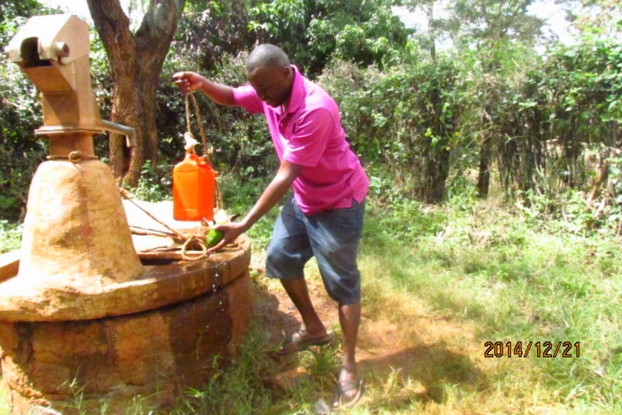
There were two ways in which we would carry water. The most common was where we would tie a rope to hang the 20-liter (5.28-gallon) containers on our back where the rope would go over our head. Or we would use commercial or homemade wheel barrows where we could push two or three 20-liter containers. This seemed an efficient method preferred by boys and men since it required enough energy to push the wheelbarrow uphill. Girls and women shied from this method and opted for the former.
However, the carrying water from the back or head had its own shortcomings. Girls and women often complained of backaches and headaches. I recall my sisters and I having impression marks on our forehead due to this daily repeated activity. This also would trigger migraines if we would place heavy water-loaded containers over our head. The method is dirty because of mud at the gathering point or dust as we walked home carrying them.
I remember growing up and being cautioned not to drown while drawing water. Bathing at the river, which is a health hazard, was the order of the day, or even washing clothes by the riverside.
I remember very well how many families had Saturdays dedicated as a day to wash personal clothes, especially school uniforms. It was the standard, especially for kids, to have a full body bath only once a week. Twice was uncommon or done by few adults who maybe had to work in offices. Washing the feet, head, and hands before going to sleep was a daily routine in many families. This was for two obvious reasons: to not soil beddings when going to sleep and also to prepare for school in the morning.
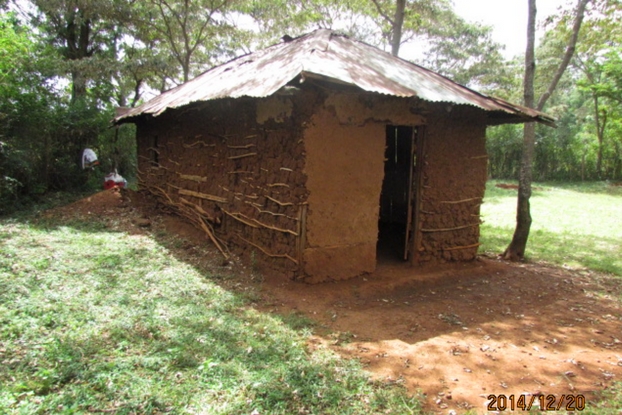
My family was living this way when humanitarian organizations including World Vision started projects to find alternative ways of supplying water. They were funding boreholes and drilling wells or building water reservoirs from high mountain elevation points. This also involved laying out pipeline infrastructure to close water points for human and animal consumption.
Since some classrooms were not cemented and the elementary school had tree seedlings that needed to be watered, it was mandatory for all grade three classes to bring to school at least 3 liters of water to water school plants or to sprinkle in the dusty classrooms after sweeping. This was intended to mitigate jigger infection (a type of parasitic sand flea).
Taking water to school alongside your books was cumbersome. Any student who failed to oblige would be sent back home to bring double the amount. This was considered a violation of the rules.
I am forever thankful that through well-wishers and international organizations like World Vision, today boreholes and wells have been drilled near our neighborhood that reduced the amount of time we would spend in a day to get just 80 liters (21.13 gallons) of water for our households.
I grew up believing that this was the way of life. But after getting the opportunity to travel to the city when I was 10, I had a different experience and yearned for a better life than the one I had lived in the hot valley of Lower Subukia. My home was dusty and the scorching sun took a toll on our water resources.
Tragedy hit when I lost my mum and dad in my teenage years of 13 and 14, respectively, due to poor living conditions. This brought another variable into a hard livelihood equation that in some ways made me realize that for us to survive as a family, we needed a change of life. My older brothers sought employment in the cities. My sister dropped out of school to find a job in Nairobi. With the help of generous donors — the angels sent my way by God — I was able to go to boarding school.
When I took my final high school national exam, I earned an average grade of B+. So I qualified to join Maseno University, one of the major public universities in Kenya.
All my life, I dreamt that one day I would become a software engineer. I ended up majoring in education science, focusing on mathematics and computers, but never gave up on my dreams.
Using government funding through loans, I was able to meet my education expenses until I graduated with a bachelor’s in education science. After I graduated, I did two years as a high school computer teacher in Kenya, then headed out for further studies abroad at Eastern Oregon University.
Of course the rest is history after I landed here. My heart to give back and help others in the community I grew up in has been a very personal goal I am passionate about. This has contributed to why I am here at World Vision. The projects being undertaken to reach out to some of these communities are very personal to me.
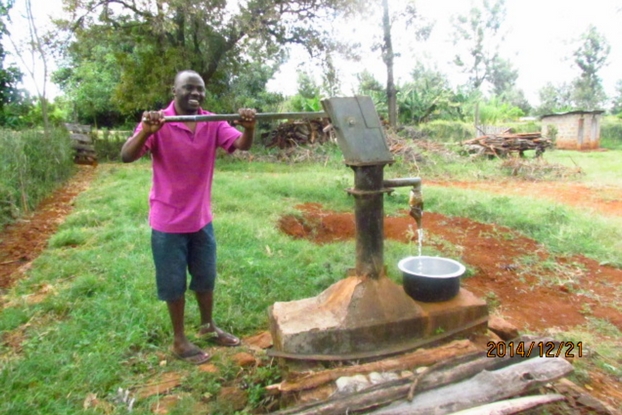
On my recent trip back to Kenya, I witnessed a sustainable project by World Vision still being undertaken in my home area. Piped water and a reservoir have been mounted in major water points for clean water consumption by humans and animals. This has reshaped and redefined the way of life for communities.
I am always thrilled to see how lives can be turned. Without a decent way of living, no clean water, no education, or sustainable employment, my life was on a downhill path alongside my siblings’ and the fellow neighbors I grew up with.
I can only attribute this change to God above, having answered my mother’s prayer to redeem the life of his children for a better tomorrow. This is exactly what happened. Working here at World Vision is a true testament of the fervent prayers of an upright woman who had a strong faith of seeing and making a better tomorrow.
To God I give all the glory and honor he is due. He has proved faithful.
When you walk or run World Vision’s Global 6K for Water, every step you take is one that children like Sam don’t have to! Walk with us so children can be healthy and go to school. Sign up today!
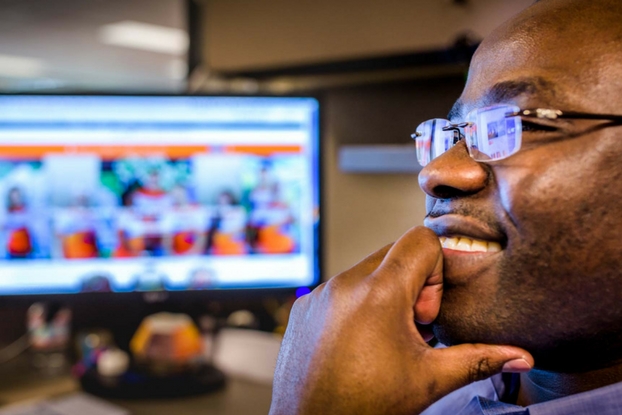
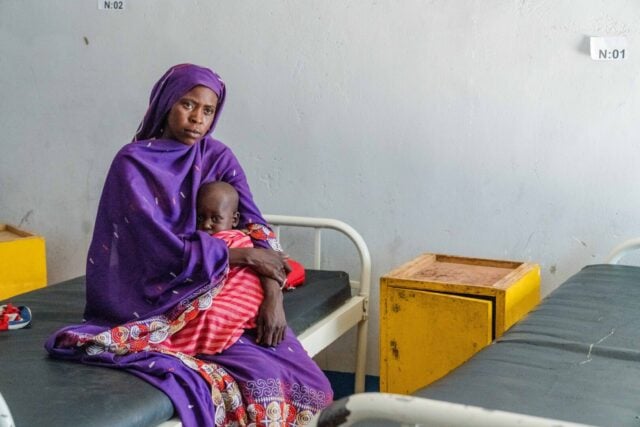


Comments